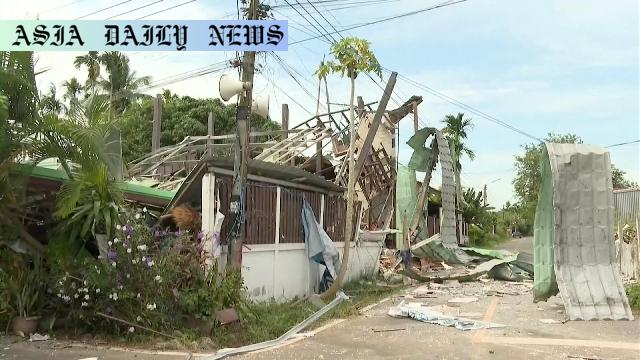Border Clashes – UN urges a peaceful resolution to Thailand-Cambodia clashes, emphasizing restraint, diplomacy, and immediate action.

Background of the Conflict
The recent clashes between Thailand and Cambodia over disputed border territories have garnered international attention, leading to an emergency meeting by the United Nations Security Council (UNSC). The conflict, which erupted on Thursday, resulted in tragic losses on both sides: 14 from Thailand and 13 from Cambodia, including civilians. It stems from long-standing tensions over the border region, particularly near the Preah Vihear temple, a UNESCO World Heritage site. Historically, this location has been a flashpoint, with both nations vying for control over the surrounding areas.
In an attempt to address the situation, Cambodia filed an urgent appeal to the UN, urging them to facilitate an immediate ceasefire and pursue peaceful resolutions. Meanwhile, Thailand insists on bilateral mechanisms for conflict resolution but condemns what it termed as Cambodia’s “indiscriminate and inhumane attacks.”
The Emergency UN Meeting and Its Aftermath
The UNSC convened a private session on Friday to deliberate and mediate. This closed-door meeting saw representatives from both nations presenting their perspectives. Cambodia’s ambassador to the UN called for immediate cessation of hostilities and reiterated his country’s willingness to seek peace through diplomatic channels. On the other hand, Thailand’s representative insisted on Cambodia halting attacks immediately and emphasized the importance of dialogue under bilateral frameworks.
Although the exact details of the UNSC’s recommendations remain undisclosed, both countries were urged to exercise maximum restraint and avoid escalations that could worsen the humanitarian toll. The tension reveals the delicate balance the international community must maintain in navigating sovereignty issues versus peace facilitation.
Implications and the Path Forward
The violent clashes underline a recurrent theme in Southeast Asia: territorial disputes that risk escalating into broader conflicts. The dispute between Thailand and Cambodia is deeply rooted in history, nationalism, and economic interests tied to border territories. As the UN steps in, their role signals the broader international community’s commitment to promoting peace in the region, but its success largely depends on the willingness of the involved parties to comply and negotiate genuinely.
Peace-building solutions include confidence-building measures, third-party mediation, and economic cooperation that incentivizes coexistence. Regional bodies like ASEAN can also play a critical role in policing these disputes, providing frameworks for countries to de-escalate tensions and prioritize dialogue over aggression.
Commentary
The Human Cost of Conflict
As the world turns its attention to the unfolding crisis between Thailand and Cambodia, it is imperative to consider the human cost of these skirmishes. Reports of civilians caught in the crossfire paint a grim picture. These are not just numbers; behind every casualty is a family grappling with loss and a community striving to rebuild in the aftermath of destruction. It is crucial for all stakeholders to prioritize saving lives and upholding humanitarian principles amidst ongoing tensions.
Diplomacy as the Cornerstone of Resolution
Diplomacy must prevail over aggression in disputes such as these. While historical grievances and territorial claims are complex and deeply entrenched, prolonged hostilities will only compound existing issues and lead to more devastation. Mechanisms for dialogue—whether bilateral or through third-party mediation—are essential. The role of organizations such as the UN is pivotal in steering conflicting parties away from violence and toward meaningful negotiation. It is heartening to see the UNSC hosting discussions, but the onus remains on Thailand and Cambodia to heed these calls for peace sincerely.
Learning from History
Conflicts such as the one at the Thai-Cambodia border serve as stark reminders that unresolved disputes will inevitably resurface. The situation must be seen as an opportunity to address longstanding grievances thoughtfully and comprehensively. The involvement of ASEAN, alongside the UN, could provide a regional framework that focuses on fostering economic cooperation, cultural exchange, and mutual trust. By engaging stakeholders at multiple levels, such initiatives can transform borders from being points of contention into bridges of cooperation and shared prosperity.
Ultimately, the road to peace is never easy, and it demands compromise, mutual understanding, and, most importantly, a commitment to prioritize human lives over political and territorial ambitions. Let this conflict serve as a lesson and a rallying call for the international community to invest more effort in preventive diplomacy and conflict resolution mechanisms.


